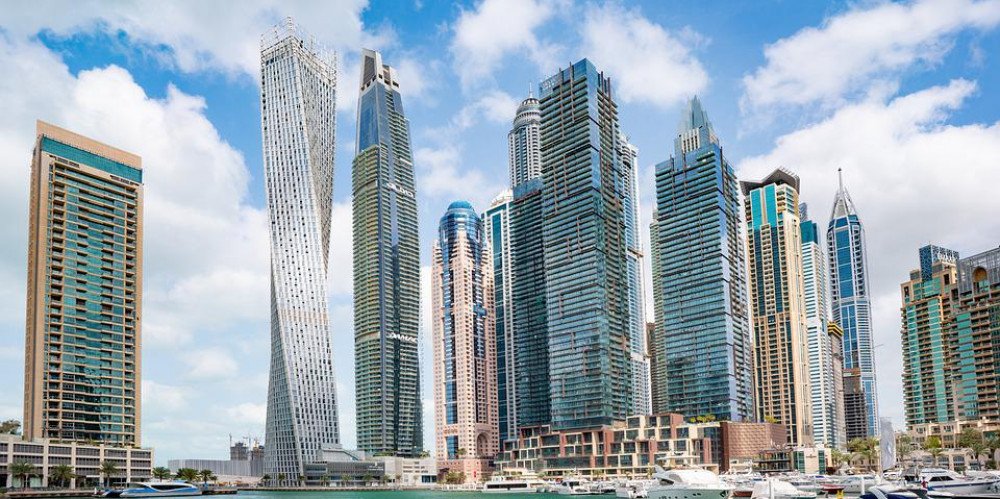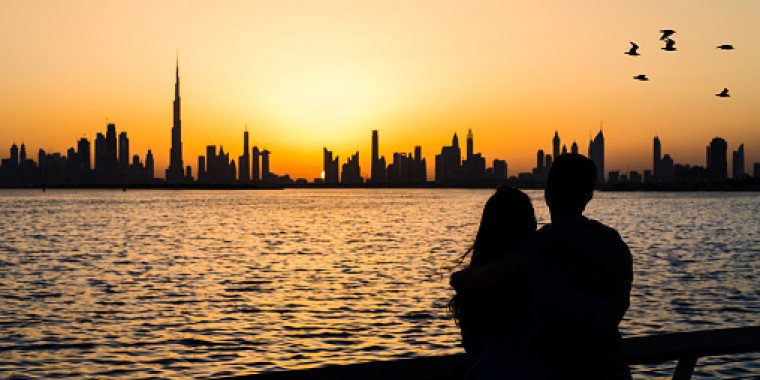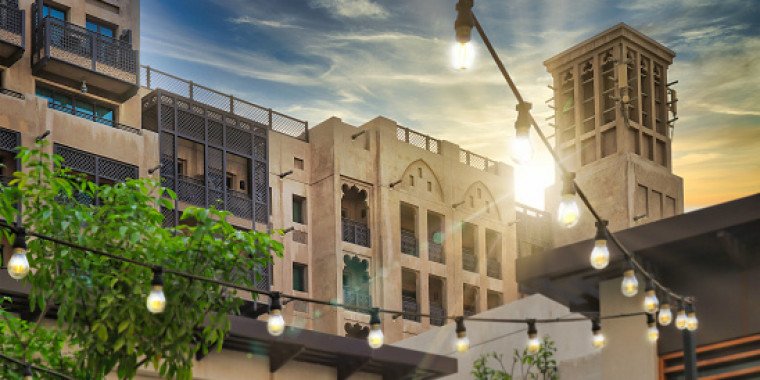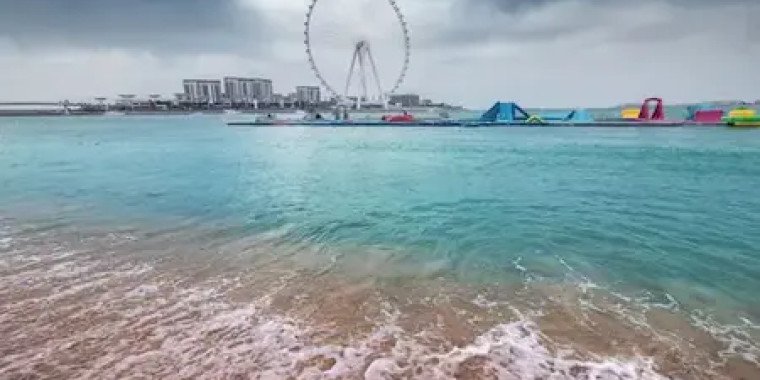
- On 12 Jul 2022
- In Travel
Dubai Myths vs. Reality – The Truth Revealed
Dubai is one of the most talked-about cities in the world, a
place that conjures images of futuristic skylines, unparalleled luxury, and
audacious ambition. Every year, millions of tourists flock to its shores, and a
significant number of expats choose to call it home. However, with such global
prominence comes a plethora of stereotypes, often painting a picture of a city
solely defined by its towering skyscrapers, opulence, and relentless pursuit of
innovation. This article aims to cut through the noise, offering an in-depth look
at the reality of Dubai by thoroughly debunking the top ten persistent myths
surrounding this dynamic metropolis.
Myth 1:
Dubai Is Just a Desert
The Truth: A Modern
City with Parks, Green Spaces, and Man-Made Marvels
The enduring image of Dubai for many is an endless expanse
of sand dunes, hot and barren. While it`s true that Dubai is strategically
located within a desert environment, the city has undergone a remarkable
transformation. Far from being a mere collection of sand, Dubai has blossomed
into a vibrant, modern metropolitan center. Lush, meticulously maintained
parks, such as the sprawling Zabeel Park and the breathtaking Dubai Miracle
Garden (a floral wonderland that astounds first-time visitors with its vibrant
displays), are testaments to human ingenuity and a commitment to greening the
urban landscape. Beyond these, the city boasts numerous man-made islands,
including the iconic Palm Jumeirah, which are home to verdant resorts,
residential areas, and thriving ecosystems. These extensive green initiatives
and carefully curated environments truly amaze most visitors, challenging their
preconceived notions of a desert city.
Myth 2:
Dubai Is Quite Conservative
The Truth: Cultural
Respect vs. Modern Life – A Harmonious Balance
Many people assume Dubai is an overly rigid and culturally
restrictive city, particularly for Western visitors. This perception is largely
inaccurate. While Dubai deeply respects its rich cultural and Islamic
traditions, it also embraces a remarkably modern and cosmopolitan way of life.
Tourists generally have the freedom to wear standard Western clothing in most
public places, from shopping malls to restaurants and beaches. The city`s
culinary scene is a global tapestry, offering diverse international cuisines,
and its social atmosphere is undeniably cosmopolitan. The key lies in cultural
respect: visitors are expected to dress modestly when entering religious sites
like mosques and in certain highly sensitive public venues, out of deference to
local customs. This balance allows for a comfortable and inclusive experience
for people from all walks of life.
Myth 3:
Only Rich People Can Go to Dubai
The Truth: There Are
Affordable Options for Every Visitor
The dazzling display of ultra-luxury hotels, high-end
shopping centers, and exclusive experiences often leads to the misconception
that Dubai is exclusively for the elite. While Dubai certainly caters to the
affluent, it is far from an exclusive playground for the wealthy. The city has
made significant strides in offering options for every budget. Travelers can
find numerous affordable hotels and guesthouses, particularly in areas like Old
Dubai. Public transportation, including the efficient and modern Dubai Metro,
is a cost-effective way to navigate the city. Furthermore, many of Dubai`s most
iconic attractions are free to enjoy, such as the sun-drenched Jumeirah Beach,
the bustling traditional souks of Old Dubai (like the Gold Souk and Spice
Souk), and the mesmerizing Dubai Fountain shows at the foot of the Burj
Khalifa. With careful planning, a trip to Dubai can be surprisingly
budget-friendly.
Myth 4:
Women in Dubai Don`t Have Any Rights
The Truth: Women Have
Significant Empowerment and Opportunities
This is arguably one of the most pervasive and inaccurate
myths about Dubai and the UAE. The reality is that women in Dubai enjoy
substantial rights and opportunities, actively participating and thriving in
various sectors. A significant number of women hold high-level positions in
government, business, and technology, contributing immensely to the nation`s
development. Women in Dubai are empowered to drive, pursue careers, own
businesses, and engage fully in public life without restriction. The government
has also proactively implemented numerous regulations and initiatives designed
to promote gender equality across various domains, including education,
employment, and political representation. For female solo travelers, Dubai is
consistently ranked as one of the safest cities globally, with additional
amenities like women-only taxi services and metro cabins for added comfort and
security.
Myth 5:
Alcohol Is Completely Illegal in Dubai
The Truth: There Are
Specific Rules About When and Where You Can Drink
The notion that alcohol consumption is entirely prohibited
in Dubai is a common misunderstanding. While Dubai adheres to Islamic
principles, which restrict alcohol, it also acknowledges its status as a global
tourism and business hub. The truth is that alcohol is available and can be
consumed responsibly within licensed establishments such as hotels, bars,
restaurants, and private residences. Visitors to these venues can enjoy
alcoholic beverages. However, it is crucial to understand that drinking and
public intoxication in non-licensed public places are strictly against the law
and can lead to severe penalties. The key is adherence to the regulations and
exercising responsible behavior. Recent changes in laws have also made it
easier for tourists to obtain temporary alcohol licenses, further clarifying
the legal framework.
Myth 6:
Tourists Shouldn`t Go to Dubai Due to Safety Concerns
The Truth: Dubai Is
One of the Safest Cities in the World
Contrary to any lingering apprehension, Dubai consistently
ranks as one of the safest cities in the world, often topping international
safety indexes. This remarkable safety record is a direct result of stringent
laws, a highly visible and efficient police force, and a low crime rate.
Tourists can generally feel very secure walking around the city, even at night,
with minimal concern for personal safety. The emphasis on law and order ensures
a secure environment for residents and visitors alike, allowing for a relaxed
and worry-free exploration of the city`s myriad attractions. The robust
security infrastructure is a point of pride for the emirate, contributing
significantly to its appeal as a global destination.
Myth 7:
Dubai Is Always Hot
The Truth: Seasonal
Variations and Pervasive Indoor Comfort
While Dubai is indeed known for its scorching summer
temperatures, the perception that it`s perpetually hot is a simplification. The
city experiences distinct seasons. From November to March, Dubai enjoys
wonderfully pleasant weather, with mild temperatures and abundant sunshine,
making it an ideal time for outdoor activities and exploration. Even during the
hotter months, the heat is rendered significantly more bearable by the
widespread use of advanced air-conditioning systems in virtually all buildings,
public transportation (including the metro and buses), and indoor public spaces
like malls and attractions. This pervasive climate control ensures that
visitors can comfortably navigate and enjoy the city even during the peak of
summer.
Myth 8:
There Are Only Skyscrapers; Dubai Lacks Heritage, Nature, and Cultural
Experiences
The Truth: A Rich
Tapestry of Heritage Sites, Nature, and Authentic Cultural Experiences Await
The iconic image of the Burj Khalifa and other futuristic
skyscrapers often overshadows the fact that Dubai offers far more than just
architectural marvels. The city is rich in history and boasts diverse natural
landscapes. Visitors can immerse themselves in the past by exploring the
traditional Al Fahidi Historical District (formerly Bastakiya), with its
charming wind-tower houses and quaint alleyways. The vibrant traditional souks,
like the aromatic Spice Souk and the glittering Gold Souk, offer a sensory
journey into local commerce and culture. A traditional abra boat trip on Dubai
Creek provides a picturesque glimpse into the city`s trading heritage. Beyond
the urban core, thrilling desert safaris offer opportunities to experience the
majestic dunes, visit Bedouin-style camps, and witness traditional
entertainment. Throughout the year, Dubai also hosts numerous cultural
festivals and events that celebrate Emirati heritage and global diversity,
showcasing a vibrant cultural scene that extends far beyond modern
architecture.
Myth 9:
There Are No Rules for Expats in Dubai
The Truth: Clear Laws
and Regulations Apply to Residents and Visitors Alike
Some might mistakenly believe that living or visiting Dubai
offers a "anything goes" lifestyle, free from the constraints of
rules. This is a dangerous misconception. Dubai operates under a clearly defined
legal framework, and everyone, including expatriates and tourists, is expected
to abide by its laws and regulations. These guidelines cover a wide range of
aspects, from acceptable public behavior and dress codes to legal documentation
for residency, employment, and business. Understanding and respecting these
laws – for instance, regarding public displays of affection, alcohol
consumption, or photography – is crucial for a smooth and enjoyable experience
in the city. Ignorance of the law is not an excuse, and adherence to local
customs and regulations is paramount.
Myth 10:
Dubai Is Only About Oil Money
The Truth: A
Diversified Economy Beyond Oil
The perception that Dubai`s immense prosperity stems solely
from oil wealth is an outdated notion. While oil played a significant role in
its early development, it is surprising to note that oil now contributes less
than 1% to Dubai`s GDP. The city has meticulously cultivated a highly
diversified and resilient economy. Tourism, real estate, finance and banking, trade,
logistics, and technology are now the primary drivers of its economic success.
Dubai has strategically positioned itself as a global commercial hub, an
international financial center, and a major transit point, demonstrating a
forward-thinking approach that extends far beyond its initial oil-based
beginnings. This economic diversification is a testament to its visionary
leadership and strategic planning.
Travelers`
Guide to Seeing the Real Dubai
To truly appreciate the multifaceted nature of Dubai and
bust these myths for yourself, consider these tips:
·
Embrace
the Contrast: Actively seek out the juxtaposition between modern and old
Dubai. Spend time in the historic Al Fahidi district, then marvel at the
contemporary architecture.
·
Utilize
Public Transportation: To save money and experience the city like a local,
make extensive use of the efficient and affordable Dubai Metro, buses, and
water taxis.
·
Respect
Local Customs While Enjoying Modern Entertainment: Enjoy Dubai`s
world-class dining and entertainment, but always be mindful of local cultural
sensitivities, especially in public spaces.
·
Plan Your
Visit for Winter: For the most comfortable outdoor experience, aim to visit
between November and March.
·
Discover
Hidden Treasures: Venture beyond the main tourist hotspots. Explore areas
like Hatta for mountain adventures, experience authentic desert camps, and
immerse yourself in local cultural events and art exhibitions.
Conclusion
Many people hold misinformed views about Dubai due to
persistent myths and outdated perceptions. Far from being merely a desert
landscape, the reality is a contemporary, welcoming, and extraordinarily
vibrant city, rich in culture, committed to women`s empowerment, and boasting
an enviable safety record. Whether you are contemplating a visit as a tourist
or considering making Dubai your new home, understanding the genuine facts
about this remarkable city will undoubtedly help you unlock its unique charm,
boundless opportunities, and truly special character.
FAQs
1. Is it safe for women
to go to Dubai by themselves? Yes, absolutely. Dubai is exceptionally safe
for solo female travelers. The city is renowned for its low crime rate, and
there are even dedicated services for women, such as women-only taxi services
and designated metro cabins, offering additional comfort and peace of mind.
2. Is it okay to wear
shorts in Dubai? Yes, it is generally acceptable to wear shorts in most
public places in Dubai, including malls, restaurants, and beaches. However, it
is always advisable to dress modestly when visiting religious and cultural
sites, such as mosques or government buildings, out of respect for local
customs.
3. Is it pricey to go
to Dubai? The cost of visiting Dubai can vary significantly depending on
your travel style and preferences. It can be as luxurious and expensive as you
wish, with high-end hotels and exclusive experiences. However, it can also be
very affordable if you opt for budget-friendly accommodations, utilize public
transport, and take advantage of the many free or low-cost attractions.
Strategic planning can help you tailor your trip to your budget.


